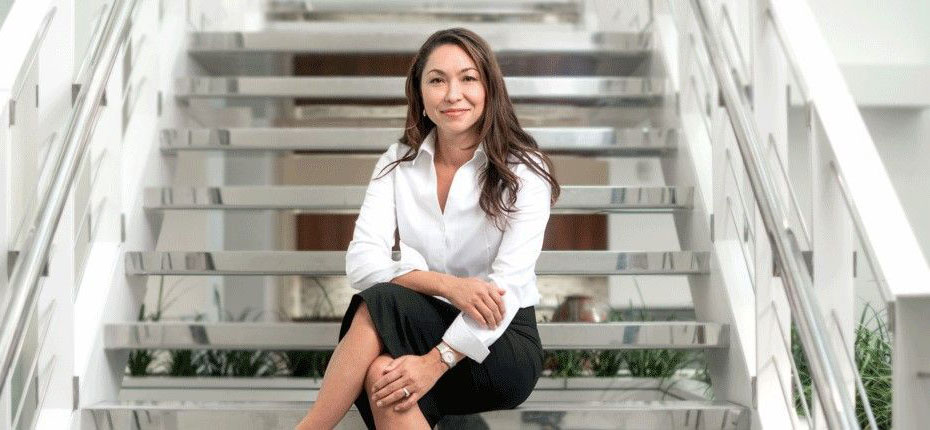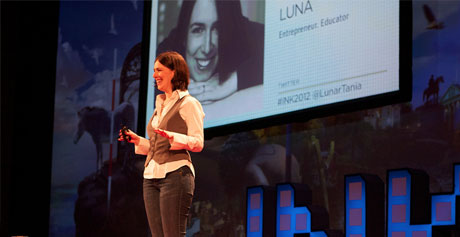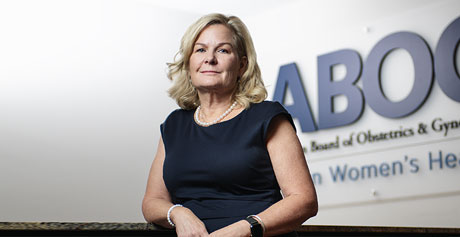Meet Denver Attorney Mechelle Y. Faulk

She Excels at Resolving Her Clients’ Most Personal & Private Matters, Including Those Regarding Wealth Preservation, Divorce, Children, Marital Agreements, Adoptions & Cohabitation.
Q: Can you share with our audience, the types of law you specialize in?
MF: My practice focuses on assisting my clients to resolve private issues relating to family matters, particularly when those issues are complex. Consequently, I assist high net worth clientele through divorces which includes identification of assets such as trust interests, business interests, royalties, investments and liabilities, as well as valuation and division of those assets and liabilities, identification of appropriate amounts of support (spousal support and child support), and child-related issues. I also assist my clients with prenuptial agreements, post nuptial agreements, allocation of parental responsibilities for children, Hague Convention matters, and private issues that arise after a divorce or legal separation has been obtained.
Q: If we interviewed all your past clients – what is “one” common word that comes up when they describe working with your law firm?
MF: Committed. We get to know our clients on a very personal level. We communicate about their goals and priorities. We strategize with them, advise them about the benefits and risks of taking certain positions, and keep them informed. We work hard, as a team, to efficiently meet goals and priorities. We are available and responsive. We get back to our clients quickly and, if an urgent issue arises, clients can reach us late at night and on weekends. We are truly committed to our clients and their best interest.
Q: What is your approach or philosophy to winning or representing a case?
MF: Every case is different and requires its own unique analysis and strategy. It’s not possible to treat every case in the same way as each case has its own facts and each client has his or her own priorities. However, there are some common practices. In every case, we begin with an analysis of the facts and a deep understanding of the client. Does this client have an art collection that she has been working for years to build and wants to protect? Is this client the beneficiary of substantial family wealth in the form of business interests and trusts? Does this client have a special-needs child? What assets does this client own and what legal arguments may apply to ensure that those assets are divided in his best interest? Once we have a thorough understanding of the client’s current situation, needs, and the details applicable to resolution of the issues, we meet and strategize with the client to discuss potential arguments and strategies and to decide, with the client, on next steps throughout the pendency of the representation.
Q: What advice would you give to young women who want to pursue a career as an attorney?
MF: Like in many professions, the practice of law comes with tremendous benefits and opportunities, but it also comes with significant sacrifices. Come into the practice of law with an open mind and make your practice what you want. A young woman can use a law degree to take many different paths to happiness and success. She could use her degree to: be an attorney in private practice at a large firm or a very small one; be the director of a nonprofit; work as a public defender or district attorney; be appointed to the bench as a magistrate, judge, or justice; work in government; be a legislator or lobbyist; write as a commentator or journalist; or do many, many other things. However, finding success in any of those things will require work, commitment, and dedication to your craft. No matter which road you decide to take, there will be some long nights, some hard days, and some trying weeks. You may worry incessantly about a client. You may be up all night meeting a deadline. You may worry about whether you will be awarded that important grant that you wrote. That is a part of practicing law and taking responsibility for the important services that you are providing. Don’t let that dissuade you. Instead, acknowledge those tough days as a badge of pride in your work, maintain work-life balance, enjoy the good days, take days away from the practice doing what you love, and remember why you became an attorney in the first place.
Finding success will also require some help from others – which is where mentoring comes in. In addition to taking pride in your work, one of the best things that you can do for your career is to find some mentors. A mentor can come from anywhere and does not have to be an attorney. You may find a mentor who is very involved in the community and who can teach you about how to get involved and provide your time for the public good. You may find a mentor at a bar association lunch who has a small practice and can give you pointers on how to run an efficient practice. You may meet a judge at an Inn of Court meeting who can mentor you on presentation, professionalism, and maintaining your reputation in the courts. You may meet an experienced opposing counsel who can give you pointers on how to navigate certain complex issues or deal with a difficult opposing attorney. When you find potential mentors, don’t hesitate to make the first move. Invite someone to coffee, tea or lunch. Ask questions. Ask him or her if you can send them an email or contact them in the future. And, during these interactions, build a relationship. These relationships are a form of friendships, albeit a more formal form, and they will nearly always result in a substantial benefit to the mentee – and the mentor.
Q: What are best practices you have employed to build a successful career?
MF: There are too many necessary best practices to detail them all for you in this article. That would take a book. However, there are a few that we should talk about.
One of my most important “best practices” which I discuss a lot with associates is the concept of digging-in to your client’s cases. It’s not sufficient to know the basic details about your client. One of the things that distinguishes my practice is that we truly know our clients. We know the details of their financials. We confer with their expert team, as appropriate, such as their accountant, wealth advisors, and estate attorney or we help them to establish their own expert team if they don’t have one. We know how our clients feel; we know their relationships with their children, their parents, and their siblings. We have delved into the past, understand how assets were acquired, who was working, who was not, how income was earned, and where that income went. We understand where our clients hope to be in 5 years, 10 years, and further into the future. It is that type of detail that helps me to be the best advisor to my clients.
Another important best practice is to give back and get involved. This not only benefits you, but it benefits your community and it usually benefits the judicial system as a whole. Let me give an example, for a period of time I was a member of the Judicial Performance Commission for the 18th Judicial District in Colorado. That commission plays an important role in Colorado’s system for rating and retaining judges. As part of that commission, I not only gave my time and served an important role in Colorado’s judicial system, but I also met a number of other involved attorneys and community members who are now part of my network. Another way to give back is to write an article or to teach a seminar to help less experienced attorneys learn a new skill or understand how to perform a skill that you already have. By writing those articles or teaching those skills, you are helping to ensure that the attorneys in our judicial system are skilled, represent their clients well, and are efficient.
Q: What is it about your job that most excites you?
MF: My clients and the work that they bring. In my practice, every day is truly different and I love it. One day, we may be working with a client to value a world-renowned art collection. The next, we may be drafting a brief on whether intellectual property is enforced in Asia and how that affects the value of a client’s business interest (which does substantial work in Asia). The next day we may be preparing arguments relating to the Hague Convention about why a child in Europe should be returned to the United States or perhaps we may exhibit relating to why valuation of a cannabis company is more appropriate than the opposing expert’s valuation. Because of the type of practice that I have, my team and I solve interesting and complex problems which keeps the work sophisticated and interesting. There are very few things that are as rewarding as resolving a complex matter for a client in a positive and satisfactory manner.
Q: What’s the greatest fear that you’ve had to overcome to get where you are today?
MF: My greatest fear is that I have missed something in a case – either an important fact or new or obscure law. Particularly newer and less experienced attorney, I was constantly afraid that I would not know how to do something procedurally or not be aware of a pivotal case relating to a specific issue. I recall how stressful it was as a new attorney being on the opposing side of a very experienced attorney who had been in front of the judge frequently or who had litigated the issue numerous times. The only way to overcome that fear is to be very, very prepared.
Know the facts, read all of the relevant case law (really read it, don’t just skim it), read and understand the opposing party’s arguments, analyze the opposing party’s discovery responses/documents/exhibits, and read and understand the procedural rules. If you are in a new division and have a questions about procedure, call the clerk, be polite and respectful of time, and ask specific questions about how things work in that division procedurally – or ask your legal assistant to do so. Clerks are incredibly nice and helpful people if you are prepared and ask specific procedural questions.
Q: Can you tell our audience one of your most memorable moments in your career?
MF: One of my most memorable moments was the first time that I did a step-parent adoption. The mother and very young daughter had left a traumatic, abusive relationship a few years before and were really struggling. She met a lovely man and they married. He loved the little girl and she loved him. However, despite having no contact with his daughter for years and paying no support to meet her needs, the biological father objected to the termination of his parental rights and did not consent to the adoption. We had to litigate the termination of the biological father’s parental rights, which we did and succeeded. A short time later, the mother, the daughter and the new husband appeared in for the adoption hearing. They brought balloons, neighbors and classmates were there with gifts, and everyone cried when the decree was entered. It was beautiful and emotional – a good reminder of how important our work is.
Q: What’s one lesson you’ve learned in your career that you can share with our audience?
MF: Find the weaknesses in your own case. Finding the weaknesses in your own case helps you to present the strongest possible case for your client. It helps to narrows the issues, reminds you to prepare a response to every potential objection and each legal argument, and it also helps to set realistic expectations for your client. If you know that you are unlikely to prevail on certain issues, it’s much better to communicate those to the client in advance, strategize about the arguments that you want to make, whether you want to concede certain issues, and decide the best possible course of action. Additionally, knowing the weaknesses in your own case will assist you and your client to engage in realistic settlement negotiations, engage in robust mediation, and tailor discovery in advance of litigation.
Q: Which woman inspires you and why?
MF: It’s really hard to choose just one. I’m very inspired by Marie Curie who won the Nobel Peace Prize twice after continuing her education in a “Flying University” that secretly offered an education to women in changing locations given the University of Warsaw’s refusal to admit women. However, my biggest inspiration is Justice Ginsberg. Even if you don’t agree with her politics, it’s hard not to respect her as she was a woman who dedicated herself, completely and every day, to a basic human right that she believed in (equality between men and women). During her career, she was strategic to take and litigate certain cases which would allow various issues relating to equality to be addressed in higher courts and which would allow important law to be created. Justice Ginsberg continued her work on the U.S. Supreme Court until she was 87 years old. Additionally, despite the fact that she and Justice Scalia saw most issues in fundamentally different ways and were strongly opposed to one another on those issues, they maintained a famously close friendship. Thus, while Justice Ginsberg was a strong litigator and advocate, she understood professionalism, respect, communication, and the process of dialogue. She was an amazing woman.
Q: Can you tell us how you manage your work life balance?
MF: Work life balance looks different for everyone, simply because it has to. Some of us have very small children, some have two cats, some have no children at home but lots of grandchildren, and some live alone but love to travel. The real question is how to balance things so that life and work are both fulfilling and positive.
My entire family lives nearby and we spend a lot of time with them. I have a great husband, two teenage daughters, and two yorkies. We have a home in Steamboat Springs, Colorado. We have a lot of friends who we adore. We love to travel, to hike, to cook, to garden, to read, to see live music, and to ski. Our lives are full, enriching, and happy. However, with all of these people and things included in it, life can be really, really busy. In order to maintain a balance, I maintain a very specific and detailed calendar. Some weeks, I may work long days and the entire weekend, other weeks I may work a few hours on the weekends, and during other weeks, I may work short days and take the entire weekend away from work and focus on my life and my family. I ensure that there is always time by staying efficient, knowing my deadlines, getting ahead of those deadlines if possible, communicating with clients about what we need and what is coming up, and putting events on my calendar (so that my assistant or paralegal does not schedule anything during times that I have blocked off).
Q: What would be the title of your autobiography?
MF: Manifest Uri. In Korean, the term uri is indicative of a sense of oneness or family with others – it expresses a shared connectedness as part of an extended family and community. A significant part of my success has been not only the close relationships that I enjoy with my family but the close relationships that I have built with my clients, other attorneys, judges, and other professionals.
Five Things About Attorney Mechelle Y. Faulk
1. What’s your favorite family tradition?
Every year, every person in my family goes to a chosen place for a family ski trip. When I say “every person” I mean my mom, my stepfather, my brother (orthopedic surgeon), his wife (pediatric oncologist), their two young children, my other brother (aerospace engineer), his girlfriend (marketing specialist), my sister and her husband (restaurant owners), my husband, and my two teenage daughters. With everyone having such busy lives, it’s not always easy to find dates that work for everyone. But we’re committed. We rent a huge home, take turns cooking amazing meals, play cards, watch movies, ski, sled, and snowmobile. It’s one of the best parts of winter.
2. What’s your favorite international food?
When I was in law school, I studied at the Université d'Aix-Marseille for a period of time. There was a café that serves the most amazing bouillabaisse. That’s definitely my favorite international food.
3. Do you read reviews, or just go with your gut?
It really depends on what we’re talking about. For movies, I pretty much go with my gut. For books, I always ask trusted friends for their favorites. For food, I ask trusted friends AND I read reviews.
4. What’s your favorite game or sport to watch and play?
Skiing. 100%.
5. What would your perfect vacation look like?
Plitvice lakes, Trogir and Dubrovnik in Croatia. That was an amazing trip. Or, perhaps, Reykjavik, Vik, Skaftafell and the Blue Lagoon in Iceland. A perfect vacation may also be Madrid, San Sebastian, Barcelona and Mallorca in Spain. There are so many amazing adventures to have that it’s impossible to choose the one perfect vacation. I guess we’ll just have to keep traveling and find out which vacation was the best one later.

